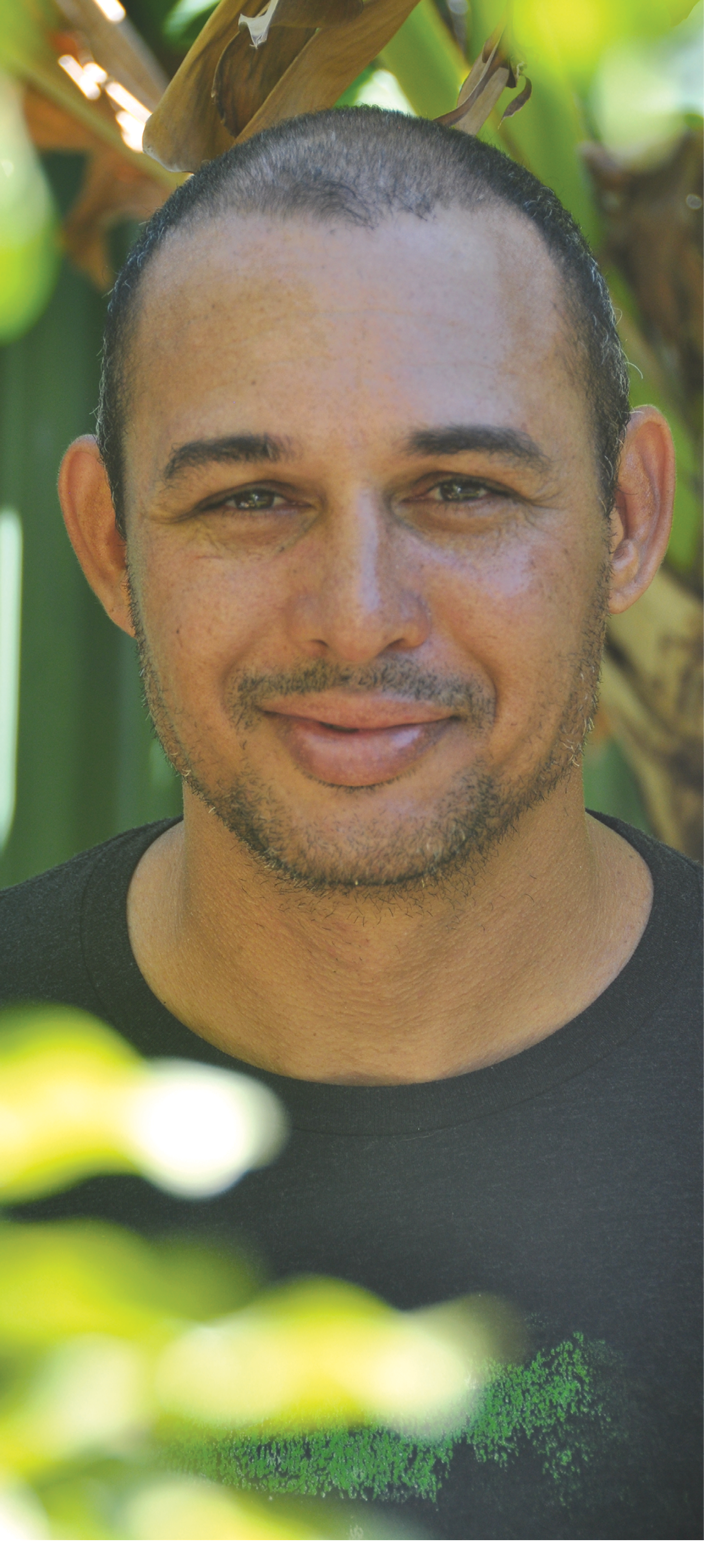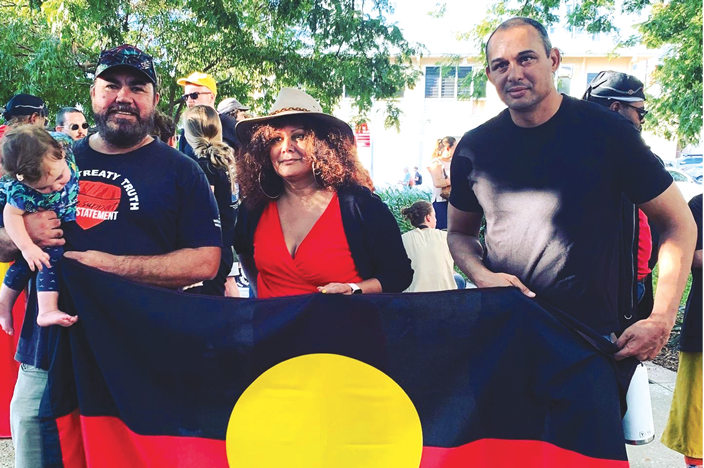
Torres Strait Islander, author, activist and unionist Thomas Mayor talks to journalist Monica Crouch about the importance of education, family and connection to culture – and the paths they’ve opened up for him.
A formative episode in Thomas Mayor’s life came in the form of the 1998 waterfront dispute, a momentous chapter in Australian industrial relations history that led Mayor to become a union representative in his workplace. After 16 years on the wharves he became a full time union official and is now Deputy Branch Secretary of the Maritime Union of Australia’s Northern Territory Branch.
Mayor, who lives in Darwin, is also a son, brother and father. He is the eldest of three children, and one of his two sisters is a teacher. His father, Celestino Mayor, is a Torres Strait Islander of Philippine and Dayak ancestry and his mother, Liz Mayor, brings Polish, Jewish and English ancestry to the family.
Mayor distils his deep and diverse heritage succinctly. “I am a Torres Strait Islander born and raised on Larrakia land, who loves family above all, and who has been following my heart to do what is right,” he writes in his book Finding the Heart of the Nation: The journey of the Uluru Statement towards Voice, Treaty and Truth” (Hardie Grant, 2019).
Mayor also advocates eloquently for three changes essential to Australia’s growth as a nation: a First Nations’ Voice to Parliament enshrined in the Constitution; a Treaty between the Australian Government and First Nations People; and truth telling about the nation’s history.
In 2017, after then Prime Minister Malcolm Turnbull rejected a First Nations’ Voice to Parliament, Mayor took the original Uluru Statement from the Heart canvas to the people. What he found was a welcoming nation willing to listen and ready for change. Mayor’s extensive travels inspired him to write Finding the Heart of the Nation.
The Uluru Statement from the Heart, reproduced in full in the book’s opening pages, invites us all to walk with Aboriginal and Torres Strait Islander people “in a movement of the Australian people for a better future”.
Here, we walk with Mayor through some important phases in his own history and hear his hopes for the future.
School days
Mayor has always lived in Darwin, where he attended Holy Family Catholic Primary School, Karama. “It was a good school,” Mayor says. “And given my family lived on one average income, I know my parents sacrificed a lot to send my two sisters and I there.”
After primary school came O’Loughlin Catholic College, Karama, up to Year 8. “I kept getting in trouble for not tucking in my shirt – I was terribly skinny and I hated it,” Mayor says. He then attended Sanderson Middle School and Casuarina Senior College for Years 11 and 12.
But there was a significant gap in the curriculum. “In school, I was taught very little about Aboriginal and Torres Strait Islander people – our history and culture,” he says. “We were taught that Captain Cook discovered Australia and that the Indigenous peoples, in the very few mentions of us, were nomadic, and there was no pain or suffering to mention. It just was.”
Something was seriously missing. “School didn’t teach me about my culture,” Mayor says. “On reflection, school was teaching the opposite of what I was experiencing. I was lucky compared to some kids, and I see the effect it has on some people, who are always fighting for their identity.
“We need to improve the curriculum so that Australian children learn the truth; so Indigenous children can feel accepted for who they are; and so all Australians, together, can embrace a connection to the lands and waters that is unique to anywhere else in the world – more than 100,000 years of continuous culture.”
It was Mayor’s father who connected him to culture, however indirectly. Celestino Mayor was born under the Aboriginals Preservation and Protection Act 1939 (Qld), and was among the first generation to escape the total control of the supposed “Protector” when this Act was repealed by the Aboriginal and Torres Strait Islander Affairs Act 1965.
“His attitude was to just work hard, not complain, and get on with it,” Mayor says. “But we practised culture in our own ways. Dad taught me to hunt traditional foods, such as turtles and dugongs. I was also fortunate enough to practise and perform island dancing as I was growing up, with other Torres Strait Islanders in the Darwin community who did express culture.”
Mayor is largely philosophical about his school years. “I enjoyed most of my schooling,” he says. “I was still quite young when I realised that the school years are a short part of life, and compared to working each day, and all the other responsibilities that come with adulthood, school is a time to enjoy.
“I therefore have mostly fond memories of school – kicking the footy around at lunch; causing mischief and occasionally getting in trouble. There were hard times as well, mainly in early primary. I was often teased about being a very skinny boy or being an ‘Abo’. But I remember this changed once I learnt to defend myself, and when more Indigenous children joined the school.”
Teachers with high impact
“I will always remember my Year 11 English teacher, Ms Arthur,” Mayor says. “In a couple of the tests and assessments, I got great marks, which surprised me. I was still having too much fun! Ms Arthur told me I would write a book one day, which I thought was impossible.” Fast forward to 2020, and Mayor is the author of two books, Finding the Heart of the Nation and the children’s book, Finding our Heart.
“From Ms Arthur, I learnt that it means a lot to a youth’s development if their strengths are identified to them and encouraged,” Mayor says. “Also, if a child is taught in a way they can enjoy.”




































































































































